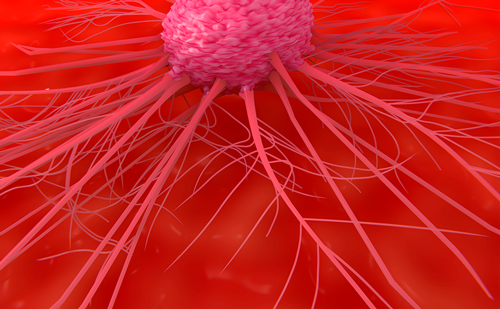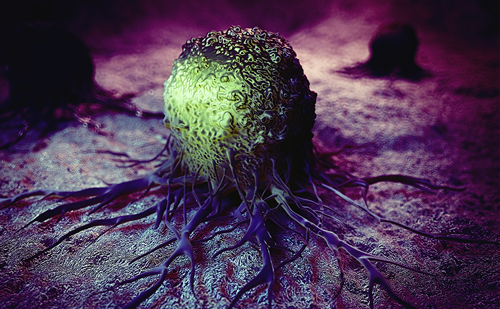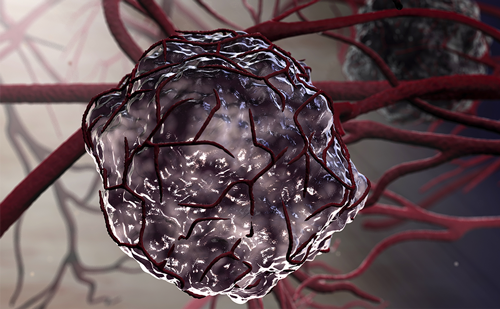Adrenocortical carcinoma (ACC) is a rare and aggressive malignancy of the adrenal cortex, with an annual US incidence of approximately one to two new cases per million population.1,2 Overall, ACC carries a poor prognosis, with the most consistent prognostic factor being the tumor stage at the time of diagnosis.3 Retrospective studies have reported a five-year survival rate of 24% for stage III and 0% for stage IV disease.4
ACC management ideally requires a multidisciplinary approach involving at least an experienced medical oncologist, an endocrine surgeon, an endocrinologist, and a pathologist (preferably one with endocrine expertise). Depending on their collective assessments, other disciplines may come into play. An estimated 80% of patients with localized disease will recur after complete resection.5–7With regard to recurrent or advanced disease, ACC is modestly responsive to standard cytotoxic chemotherapies, although various combinations have shown palliative benefit. Radiation and ablative techniques have been used with variable benefit, depending on the clinical scenario.
Clinical
Approximately 60% of ACC tumors are hormonally active or ‘functional’, where they present with signs and symptoms related to production of excess hormones. Cushing syndrome is the most common cause of morbidity and is the most frequent presentation in 45% of cases as compared with a mixed Cushing and virilization syndrome characterized by both glucocorticoid and androgen excess in 25% of cases.8,9Glucocorticoid excess causes weight gain, fatigue, muscle weakness, and insomnia progressing over the course of months. Feminization and hyperaldosteronism occur in fewer than 10% of cases.8 Virilization alone manifests in fewer than 10% of cases, but in the context of an adrenal lesions, this finding tends to be most suggestive of ACC.
In contrast, ‘nonfunctioning’ ACCs include those with normal or subclinical production of hormones. These tumors are usually discovered incidentally when imaging is obtained for other reasons or as a consequence of a local mass effect or metastatic disease progression.
Treatment and prognosis
The distinction of ACC from benign cortical adrenal tumors and medullary based tumors is critical. Although multidisciplinary approaches to ACC may result in long-term disease control and survival, conventional chemotherapy is not curative and newer targeted therapies have not yielded any significant impact on disease trajectory.
Platinum-based chemotherapies form the cornerstone of first-line ACC therapy, which have response rates ranging from 11–48%, affected in part by patient selection.10,11Specifically, the combination of etoposide/ doxorubicin/cisplatin chemotherapy given in conjunction with mitotane offers the current standard approach based on a Phase III clinical trial result.12Despite no differences in overall survival (OS) being found, this study provides the most robust evidence for the systemic treatment of advanced ACC.
Looking ahead, important emerging genomic and molecular insights as well as immunotherapeutic strategies, which are being formally tested in clinical trials provide optimism in realizing novel therapeutics and improved patient outcomes.












